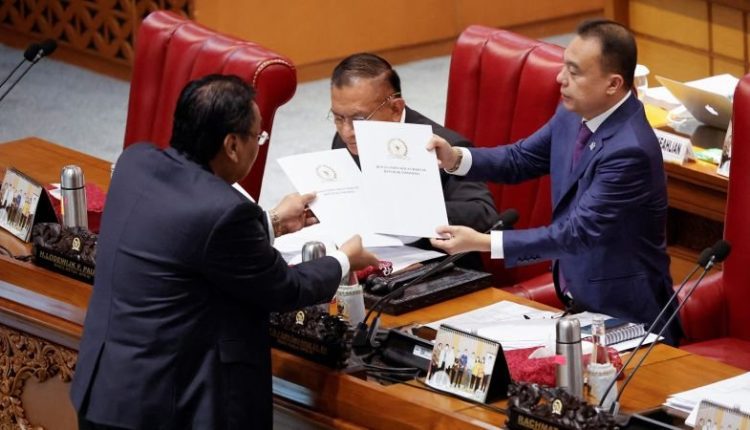Indonesia’s parliament on Tuesday banned sex outside marriage with a punishment of up to one year in jail.

As part of a series of reforms that critics claim endanger the human rights and freedoms in the Southeast Asian nation, Indonesia’s legislature unanimously approved a comprehensive new criminal code on Tuesday that criminalizes sex outside of marriage.
Cohabitation before marriage and apostasy are prohibited by the new code, which also applies to international residents and visitors. It also imposes penalties for insulting the president or expressing opinions that are incompatible with the dominant ideology.
Maulana Yusran, deputy chief of Indonesia’s tourism industry board, said the new code was “totally counter-productive” at a time when the economy and tourism were starting to recover from the pandemic.
“We deeply regret that the government has closed its eyes.
“We have already expressed our concern to the ministry of tourism about how harmful this law is,” he said.
Not only have the revisions to the penal code disturbed proponents of human rights who feared that they could strangle individual freedoms, but also representatives of the travel sector who were concerned about how they might affect tourism.
“All have agreed to ratify the (draft changes) into law,” said lawmaker Bambang Wuryanto, who led the parliamentary commission in charge of revising the colonial-era code. “The old code belongs to Dutch heritage … and is no longer relevant.”
In a news conference, Tuesday, Law and Human Rights Minister Yasonna Laoly said it wasn’t easy for a multicultural and multi-ethnic country to make a criminal code that “accommodates all interests.”
He said he hoped that Indonesians understood that lawmakers had done everything they could to accommodate “public aspiration,” and invited dissatisfied parties to submit a judicial review to the constitutional court.
In the lead-up to Tuesday’s vote, rights groups and critics warned that the new code would “disproportionately impact women” and further curtail human rights and freedoms in the country of more than 270 million people.
“What we’re witnessing is a huge setback to Indonesia’s hard-won progress in protecting human rights and fundamental freedoms after the 1998 revolution. This criminal code should have never been passed in the first place,” said Usman Hamid, executive director of Amnesty International Indonesia.
Do you think this is the right step to take? Would this work in Nigeria?
Watch the reaction of the ladies to this trending topic


















